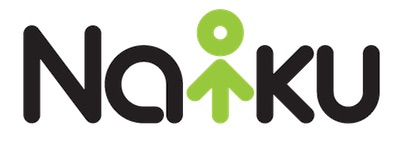
Naiku Blog: News, White Papers, and Case Studies
-
How Students Learn
Read MoreTo Improve Student Learning, We Must Understand How Students Learn. In the wilderness of educational practices, programs, and interventions, ranging from charter schools, to phonics instruction, to peer instruction, one practice has been shown, time and time again, to greatly improve student learning: feedback. It is one the most researched and documented ways of how […]
-
Visible Learning with Naiku
Read MoreIn Visible Learning and Visible Learning for Teachers, Dr. John Hattie (2009, 2012) synthesizes over 900 meta- analysis research studies involving hundreds of millions of students to determine what actually works in schools to improve learning. Hattie looked into influences of the student, home, teacher, school, curricula, and instructional strategies. He found that the teacher, […]
-
Taking Tests on Bubble Sheets and Scanning with Naiku
Read MoreMost students take tests on Naiku using their computers, laptops, tablets, and mobile devices. However, if your students do not have access to a computer or device on test day (perhaps they forgot it at home; we all know how students can sometimes be forgetful), you can print out the test and a bubble sheet […]
-
Assigning a Test to Multiple Classes
Read MoreWhen I conduct Naiku PD and demonstrations, I’m often asked, “Can I assign a test to multiple classes at once?” The answer to that question had always been “No, you have to assign a test to each class separately.” The reasoning behind that was that we wanted to keep each test separated by class so […]
-
Standards-Based Scoring and Reporting
Read MoreIf you’re a Naiku user, you already know that you can do standards-based scoring with Naiku. When you align your test questions to national, state, or local standards (or learning targets), you know that your students’ results are scored by those standards. For each student, you can track and monitor their proficiency status by standard. Students […]
-
Scoring of Multiple Response Items
Read MoreOver the past weeks, several teachers have written to me asking for clarification on how multiple response items are scored in Naiku. Multiple response items are basically multiple choice items where two or more of the response alternatives are correct. Students are directed to identify all the correct answers. Scoring of multiple […]
-
Transferring Percentages into Your Gradebook
Read MoreOne of the most popular features in Naiku is the ability for teachers to transfer test scores into any gradebook. With the press of one key, teachers can transfer scores for all students into their gradebook. This is a huge time savings from having to manually enter scores for each individual student. Recently, we’ve […]
-
Viewing PDF and Word Tests in Naiku
Read MoreWe’ve heard from many teachers expressing their desire to allow students to see the test questions in Naiku when they upload their PDF or Word test to a Quick Key assessment. We’re happy to report that now you can. When you upload a PDF or Word file of your test to your Quick Key […]
-
Don’t Forget the Students
Read MoreTeachers and readers of this blog are well aware of the power of formative assessment. As Black and Wiliam have summarized, formative assessment is one of the most effective instructional strategies ever. Popham (2009) provides this clear and concise definition of formative assessment: “Formative assessment is not a test. Rather, it is an ongoing process […]
Search
Popular Posts
-
Data Driven Instruction with Naiku
Premier educators such as Dr. Paul Bambrick-Santoyo (Driven By Data 2.0: A Practical Guide to Improve Instruction) and Dr. John Hattie (Visible Learning) promote the use of data in enhancing instruction and student learning. In this linked white paper, Dr. Adisack Nhouyvanisvong discusses these techniques and showcases how to implement them using Naiku.
-
Use ACT Quick Checks for Progress Monitoring
Naiku provides over 50 ACT Quick Checks for teachers to use for student progress monitoring in all ACT test subjects. ACT Quick Checks are short, topic-focused, formative assessments; typically 6-12 questions in length. Each Quick Check contains questions from a single topic, such as Math-Functions, so teachers can use to easily monitor progress between benchmark […]
